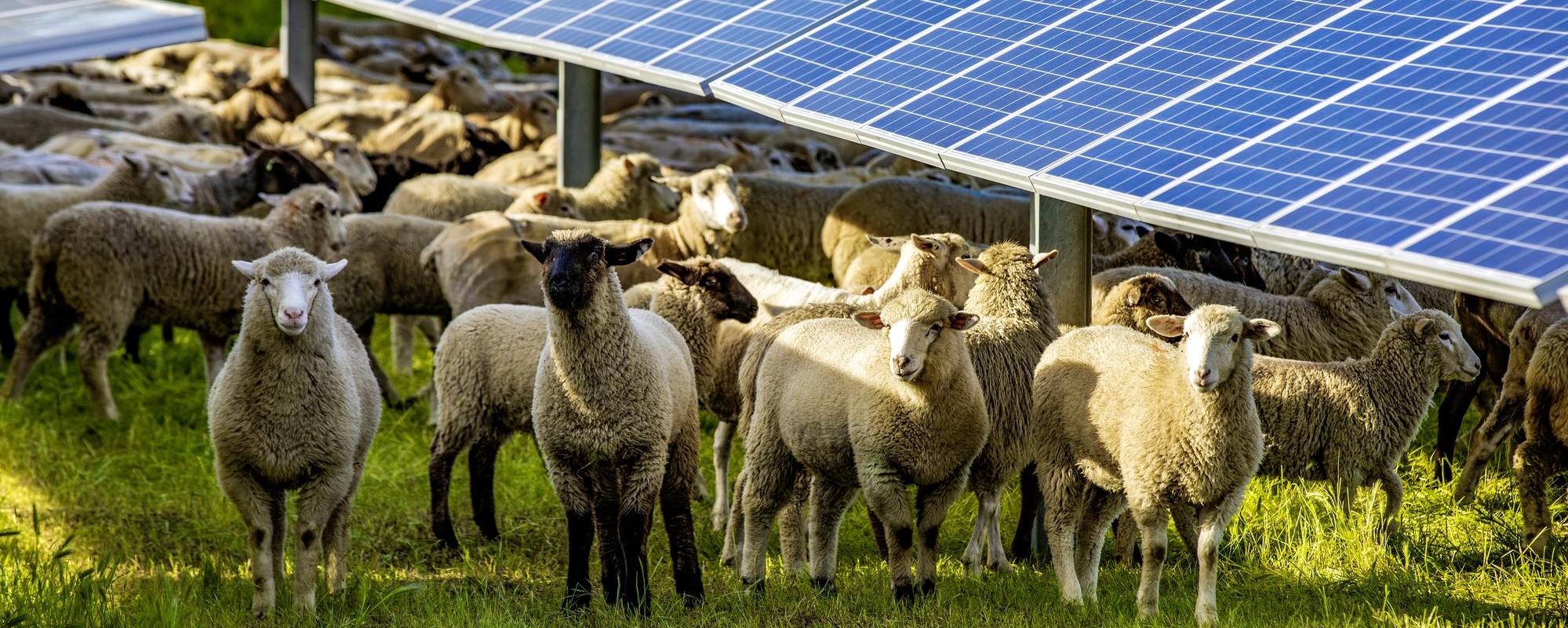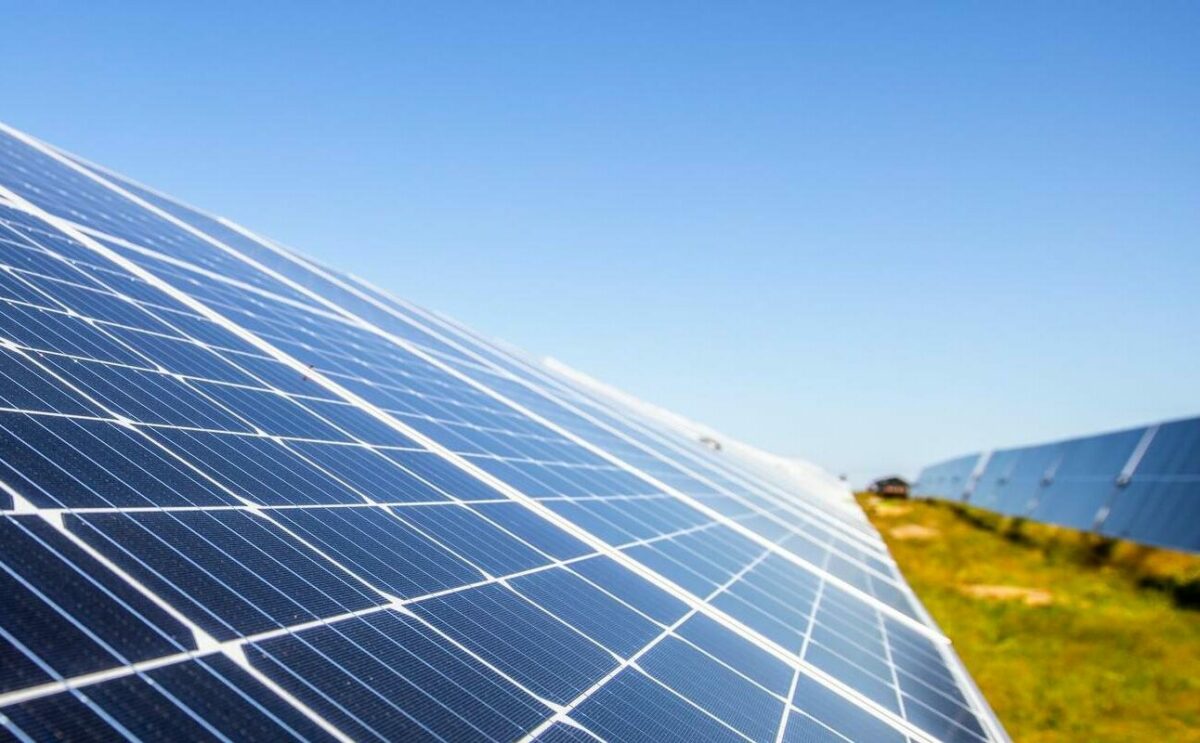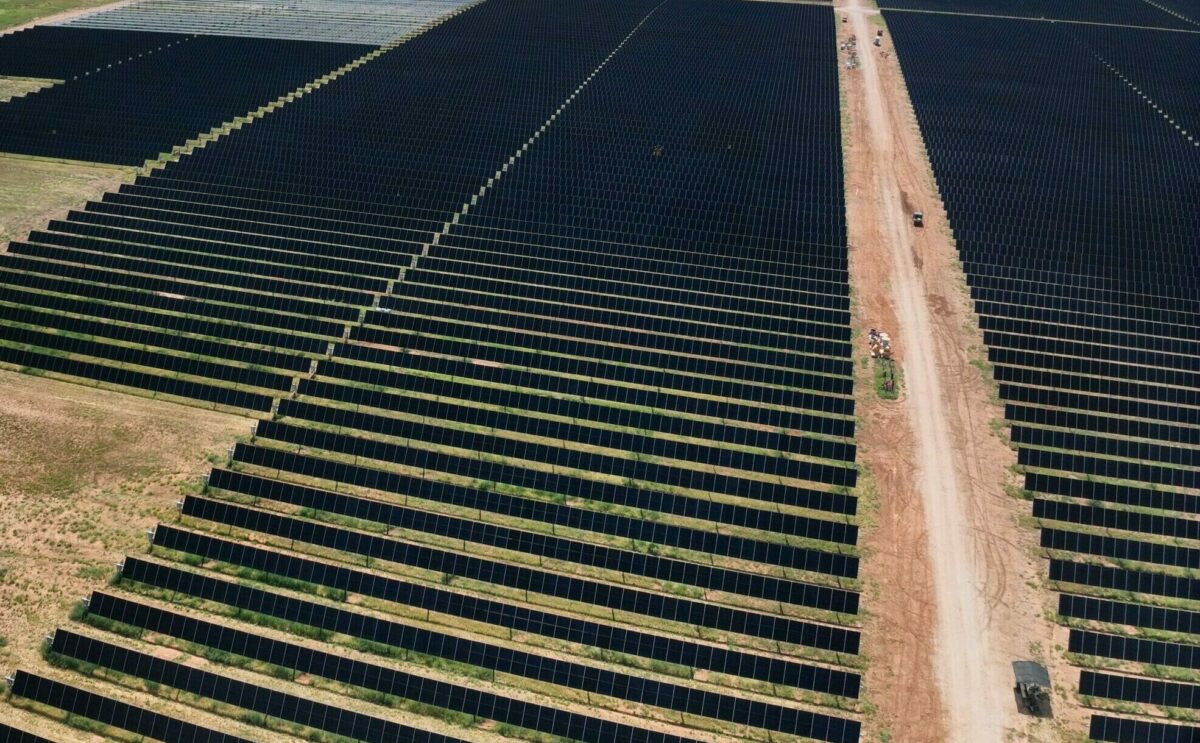Wool quality and sustainability: Insights from Lightsource bp’s Wellington solar farm
In a step forward for sustainable farming practices, Lightsource bp has seen promising results from the second round of wool testing at its Wellington solar farm, in New South Wales, Australia. The study, conducted by EMM Consulting, with support from Elders Rural Services, examined the potential benefits of co-locating sheep grazing and solar energy generation.
Through comparisons of two groups of merino sheep – one group grazed in a regular paddock and the other at the Wellington solar farm – the findings suggest that the co-location of solar farming with sheep grazing is not negatively impacting wool production, even in the case of pre-existing high-quality standards. Some parameters even indicate an improvement in wool quality, although conclusive benefits require further long-term measurement.
Brendan Clarke, interim Head of Env Planning Aus & NZ, at Lightsource bp said: “Finding ways for agriculture and clean energy to work together is crucial for a more sustainable future. The promising results from this study indicate that we are on the right path, and working closely with farmers to grow our knowledge in this area is paramount.”
Emilien Simonot, Head of Agrivoltaics EMEA, at Lightsource bp, said: “These results are very encouraging and highlight the potential for solar farms to complement agricultural practices. By integrating sheep farming with solar energy production, we can achieve dual benefits of sustainable energy together with agricultural output.”
The study results are summarised in the table below.
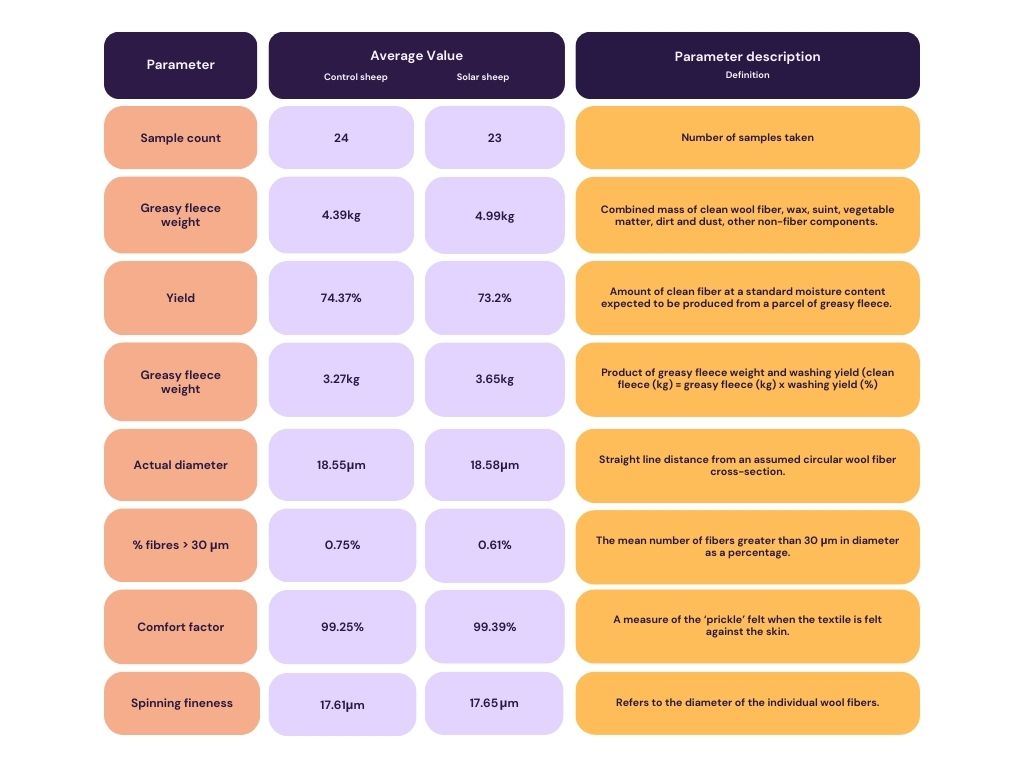
Sheep grazing and solar – a sustainable future for farming
While it is important to note that the study at the Wellington solar farm is ongoing, it is another indication that solar farms can offer a conducive environment for sheep farming, benefiting both renewable energy production and agricultural activities. By co-locating grazing with renewable energy, land can remain in agricultural use, offering farmers additional revenue while contributing to cleaner energy for the planet.
Lightsource bp is committed to promoting the growth and accessibility of solar power across the world, benefiting people, local communities and the planet.
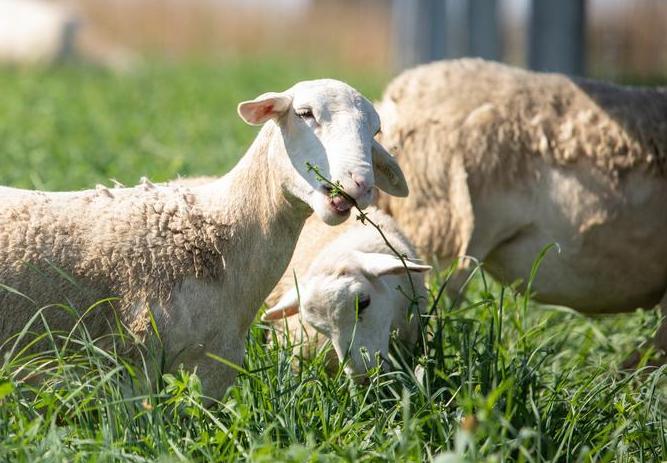
Learn more about agrivoltaics
Solar farms can grow more than electricity. Agrivoltaics (agriculture + “photovoltaics”) places crops or livestock underneath and between rows of solar panels. While researchers are trialling how to grow fruit and vegetable crops at scale, the most common and successful forms of agrivoltaics at solar projects currently are sheep grazing and bee keeping. These practices keep the land in agriculture while providing additional revenue for our farmer partners and ecosystem benefits to the environment.
Learn more about Lightsource bp’s agrivoltaics activity.
Latest news
04 Feb, 2026
Energy in Focus – Safety that delivers: reducing risk and protecting long-term value
Safety is not only about protecting people – it is fundamental to how we deliver projects on time, reduce risk and protect long-term asset value across our global portfolio.
15 Jan, 2026
Lightsource bp’s hail mitigation solution showcased in the World Economic Forum’s Innovation Playbook for Future Power Systems
The World Economic Forum (WEF) launched the Innovation Playbook, showcasing practical, scalable solutions driving the transformation of global power systems.
13 Jan, 2026
USA: Lightsource bp and Toyota enter into a power contract in Texas
Lightsource bp and Toyota Motor North America have finalized a virtual power purchase agreement for energy from the 231MW Jones City 2 solar farm in Texas.

